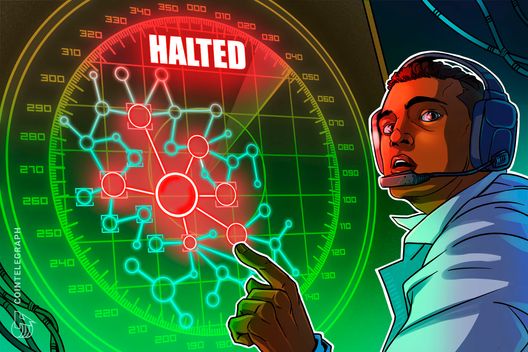ARTICLE AD BOX
A Madras High Court judge barred WazirX from reallocating a customer’s XRP holdings and declared cryptocurrency qualifies as property under Indian law, setting a precedent that may reshape how exchanges handle user assets during insolvency proceedings across multiple jurisdictions.
As The Times of India reported on Oct. 25, Justice N Anand Venkatesh ruled that the entity operating WazirX cannot redistribute, apportion, or reallocate 3,532.30 XRP coins belonging to Rhutikumari, who purchased the assets by transferring funds from her Chennai bank account.
The court granted an interim injunction after finding jurisdiction, despite WazirX’s argument that a Singapore High Court-supervised restructuring scheme controlled the matter.
Justice Venkatesh stated:
“Cryptocurrency is treated as a virtual digital asset, and it is not treated as a speculative transaction.”
The ruling cited Section 2(47A) of the Income Tax Act, which governs virtual digital assets, and found that cryptocurrency “is capable of being enjoyed and possessed (in a beneficial form) and is capable of being held in trust.”
WazirX contended that the platform does not own crypto wallets and that all users would receive pro rata compensation through a three-step process supervised by Singapore’s high court following a hack that halted withdrawals.
The exchange argued that the Madras High Court lacked jurisdiction because the arbitration was seated in Singapore.
The court rejected that position. Justice Venkatesh noted that Rhutikumari transferred funds from India, accessed the platform from within the country, and therefore established that part of the cause of action arose within the Madras High Court’s territorial jurisdiction.
The decision treats crypto holdings as distinct property rights rather than unsecured claims in a bankruptcy pool.
XRP property status shapes remedies in other venues
Courts in the US routinely treat crypto as property for remedial purposes, though regulatory classifications vary by agency.
The New York state court issued a temporary restraining order over stolen USDC in the LCX case and authorized service by NFT. Federal courts freeze wallets and seize crypto under Rule 65 and civil forfeiture statutes.
Relief against exchanges depends on the contractual structure: customers holding assets in omnibus or “Earn” programs that transfer title recover less than those with proper custody arrangements, where platforms act as bailees, as seen in the Celsius Earn ruling.
English courts recognize crypto as property and grant proprietary injunctions, freezing orders, and Bankers Trust disclosure against exchanges, including those overseas.
AA v Persons Unknown established the framework in a Bitfinex ransomware case, while Fetch.ai v Persons Unknown applied it to a Binance case.
LMN v Bitflyer confirmed disclosure orders can reach foreign exchanges. Parliament moved to codify digital-asset property concepts following the Law Commission’s 2023 report, solidifying the legal foundation for such orders.
| Is crypto “property”? | Yes; expressly stated and “capable of being held in trust.” | Yes for many purposes (tax/property; courts issue TROs, seizures). | Yes; courts treat crypto as property supporting proprietary relief; government moving to codify. | Yes; recognised across tokens and NFTs; can be held on trust. |
| Can courts stop an exchange from touching user coins? | Yes; interim injunction barred WazirX from reallocating customer XRP. | Yes, via TRO/prelim injunction and constructive-trust theories, but platform ToS can be outcome-determinative (Celsius Earn). | Yes; proprietary injunctions and disclosure orders regularly bind exchanges, incl. abroad (AA; Fetch.ai; LMN). | Yes; proprietary and Mareva relief granted; exchanges compelled to disclose. |
| Notable limits or wrinkles | Court asserted jurisdiction despite Singapore scheme; framed assets as trust property. | If ToS transfers title (yield/earn), users may be unsecured creditors in insolvency. | Some injunctions against exchanges have been discharged on the facts; relief is case-specific. | Strong on property/trust, but final outcomes still hinge on facts and contractual terms. |
Singapore’s High Court has granted proprietary and worldwide freezing injunctions over stolen crypto in CLM v CLN, recognized NFTs and tokens as property, and, in Bybit v Ho Kai Xin, confirmed that crypto can be held on trust. This doctrine is relevant when users claim an exchange or insider holds assets on their behalf.
Quoine v B2C2 was the first to flag trust issues in exchange settings. Subsequent cases refined the property analysis to support stronger customer protections.
The Madras ruling aligns India with jurisdictions that prioritize property rights over pooling schemes in cases where exchanges face insolvency or restructuring.
By establishing that crypto purchases create enforceable property interests rather than mere contractual claims, the decision may limit how platforms redistribute user holdings during financial distress and clarify that local courts retain jurisdiction over assets accessed and funded domestically, regardless of where corporate restructuring proceedings occur.
The post Landmark ruling in India treats XRP as property, not speculation appeared first on CryptoSlate.
.png)
 2 hours ago
1
2 hours ago
1








 English (US)
English (US)